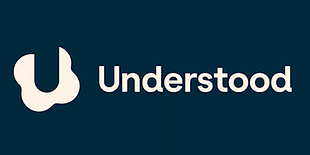

ABOUT DYSLEXIA
What is Dyslexia?
Most people know that dyslexia is a challenge with reading. But they may not understand just how it affects someone's ability to read. A common myth about dyslexia is that people who have it CAN'T read, which isn't true! Sometimes it looks or sounds like they are reading fairly well. Dyslexia can also cause trouble with spelling, speaking, and writing. Signs can show up in a few areas, not just in reading.
While having dyslexia is often seen as a disadvantage, it also provides some amazing strengths and gifts! People with dyslexia are often visionaries in their fields. They are creators, inventors, and entrepreneurs. They can see the bigger picture and easily find connections among myriad ideas and information. They are story tellers. They have strong visual-spacial skills and great imaginations! We are now able to see through brain imaging how dyslexic brains process information differently than non-dyslexic brains, which is helping us understand to a greater extent that dyslexia is not a curse! It provides some challenges in traditional learning environments, to be sure, but it also provides some wonderful advantages in the real world!
That being said, dyslexia is most often identified by noting the troubles it brings, not it's strengths. I've listed below some of the most common symptoms for a variety of age groups. The symptoms won't look the same for everyone, and not everyone will have all of the symptoms, so it can be a little tricky to sort out. If you're seeing several symptoms, especially across age- or grade-levels, we may want to pursue further assessment.
Preschool signs of dyslexia
-
Mispronouncing words, like saying "basketti" instead of "spaghetti"
-
Struggling to name familiar objects, using general words like "thing" and "stuff" instead
-
Having a hard time identifying and producing rhymes, or remembering rhyming songs & games
-
Having trouble remembering sequences, like singing the letters of the alphabet
-
Telling stories that are hard to follow or having trouble talking about an event in a logical order
-
Having difficulty remembering and following directions with multiple steps
-
Having trouble recognizing their own written name
Grades K–2 signs of dyslexia
-
Having trouble learning letter names and remembering the sounds they make
-
Often confusing letters that look similar (like b, d, p, and q) or sound similar (like f and v, b and p, or d and t)
-
Struggling to read familiar words (like cat), especially if there aren’t pictures
-
Substituting words when reading aloud, like saying "house" when the story says "home"
-
Having trouble separating the individual sounds in words and blending sounds to make a word
-
Having trouble remembering how words are spelled and applying spelling rules in writing
-
Showing a strong dislike for reading; hiding when it's reading time, or always asking for someone else to read TO them
-
Having trouble remembering their address and/or important phone numbers
Grades 3–5 signs of dyslexia
-
Confusing or skipping small words like "for" and "of" when reading aloud
-
Having trouble sounding out new words
-
Having trouble quickly recognizing common words (also called sight words)
-
Struggling to explain what happened in a story or to answer questions about it
-
Not recognizing the same word on a page
-
Continuing to reverse letters like b and d
-
Having poor spelling, spelling the same word correctly and incorrectly on the same page
-
Avoiding reading whenever possible or getting frustrated or upset when reading
-
Avoiding writing, preferring to tell stories or give oral answers to questions
-
Preferring to listen to books rather than read on their own
-
Having a hard time finding the right word
-
Difficulty with memorization of math facts and/or solving story problems
-
Grades and test scores seem inconsistent with student's knowledge
Tween, teen, and adult signs of dyslexia
-
Reading slowly or leaving out small words and parts of longer words (like suffixes)
-
Struggling to remember common abbreviations, including ones on social media
-
Often searching for words, seems to be "on the tip of my tongue"
-
Often not “getting” the joke or having trouble understanding idioms and puns
-
Taking a very long time to complete reading assignments
-
Having an easier time answering questions about a page of text if it’s read aloud
-
Transposing numbers in a sequence (saying "5429" instead of "5294")
So, What's Next?
Testing
If you suspect your student might have dyslexia, we can conduct an educational assessment for dyslexia. This evaluation can help us determine if dyslexia is the root cause of their reading/spelling struggles or if there's more going on. It can help us decide what type of instructional methods and accommodations will be best for your student!
Did you know?
Having dyslexia is more common than being left-handed. It is a highly inheritable trait. (If one parent is dyslexic, half of the children will be. If both parents are dyslexic, all of the kids will be.) It can present in different ways and to varying degrees, so your dyslexia may not look quite like anyone else's.
Curriculum/Methods
Along with my training in the Orton-Gillingham method, I have used both Barton and Wilson programs extensively. For your student, I'll choose the best methods and exercises from all the resources I know to personalize a Rise to Reading plan that meets their specific needs.
Parent Involvement
Parent support is an important factor in helping a struggling student Rise to Read. We'll discuss what level of involvement works best for your family!
Want to learn more about Dyslexia and resources for your student?


